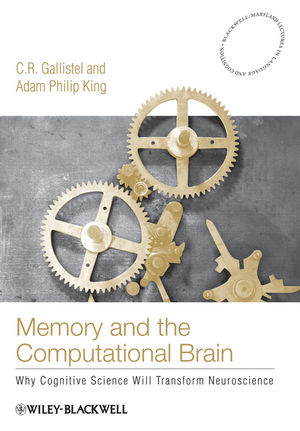|
Textbook
Memory and the Computational Brain: Why Cognitive Science will Transform NeuroscienceISBN: 978-1-4051-2288-7
Paperback
336 pages
April 2009, ©2009, Wiley-Blackwell
 This is a Print-on-Demand title. It will be printed specifically to fill your order. Please allow an additional 10-15 days delivery time. The book is not returnable.
Other Available Formats: Hardcover
|
||||||
"The authors provide a cogent set of ideas regarding a kind of brain functional architecture that could serve as a thought-provoking alternative to that envisioned by current dogma. If one is seriously concerned with understanding and investigating the brain and how it operates, taking the time to absorb the ideas conveyed in this book is likely to be time well spent." (PsycCRITIQUES, November 2009)
"Along with a light complement of fascinating psychological case studies of representations of space and time, and a heavy set of polemical sideswipes at neuroscientists and their hapless computational fellow travelers, this book has the simple goal of persuading us of the importance of a particular information processing mechanism that it claims does not currently occupy center stage." (Nature Neuroscience, October 2009)
"Any scientist seriously interested in how the brain does its work will find Gallistel and King's new book indispensable. It challenges modern dogma and does so in a clear and compelling manner."–Michael Gazzaniga, University of California, Santa Barbara
"Gallistel and King present a provocative challenge to our
current "standard model" of information processing in the brain.
This book's ideas should be read and digested by both cognitive
scientists and neuroscientists - anyone seriously interested in the
biological or computational underpinnings of learning."
–Joshua B. Tenenbaum, Massachusetts Institute of
Technology
"A lucid and convincing argument for a particular architecture
for encoding information in the brain, based on some key notions of
computational cognitive science, a significant contribution to
neuroscience."
–Aravind K. Joshi, University of Pennsylvania



